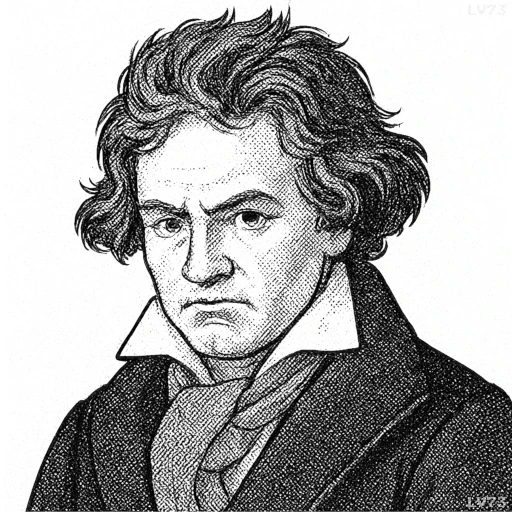“I must confess that I lead a miserable life. For almost two years, I have ceased to attend any social functions, just because I find it impossible to say to people, ‘I am deaf.’ If I had any other profession, I might be able to cope with my infirmity; but in my profession, it is a terrible handicap.”

- December 16, 1770 – March 26, 1827
- Born in Germany (Holy Roman Empire)
- Composer, pianist
table of contents
Quote
“I must confess that I lead a miserable life. For almost two years, I have ceased to attend any social functions, just because I find it impossible to say to people, ‘I am deaf.’ If I had any other profession, I might be able to cope with my infirmity; but in my profession, it is a terrible handicap.”
Explanation
In this quote, Beethoven reveals the profound personal anguish he felt as a result of his deafness and how it impacted both his social life and his career as a composer. At the time, the inability to hear was seen as a devastating handicap, especially for someone whose artistic identity was so tightly bound to sound. The quote speaks to the isolation Beethoven felt, as he withdrew from social circles, unable to face the humiliation or frustration of revealing his condition to others. Despite his accomplishments, the inability to hear the music he composed created a deep sense of loss and helplessness, not just as a composer but as a person.
This quote also highlights the idea that the profession one chooses plays a pivotal role in how one deals with personal struggles. For Beethoven, music was not just a job; it was his life’s purpose, and his deafness was a constant reminder of his vulnerability. Had he been in a different field, he might have been able to adapt to his condition, but as a composer, the physical loss of hearing was a cruel irony. This speaks to the broader human experience of adaptation in the face of adversity. Many individuals, especially those in creative fields, face the challenge of continuing their work despite limitations—whether physical, mental, or societal.
In modern times, this quote resonates with anyone who has faced a disability or significant challenge that affects their professional and personal life. Just as Beethoven struggled to reconcile his artistic vision with his infirmity, many people today find it difficult to confront or share the limitations they face due to illness or disability. The quote also underscores the human spirit’s resilience, as Beethoven, despite these immense struggles, continued to create extraordinary music, demonstrating how the drive to create can sometimes offer the strength needed to transcend personal hardships.
Would you like to share your impressions or related stories about this quote in the comments section?

